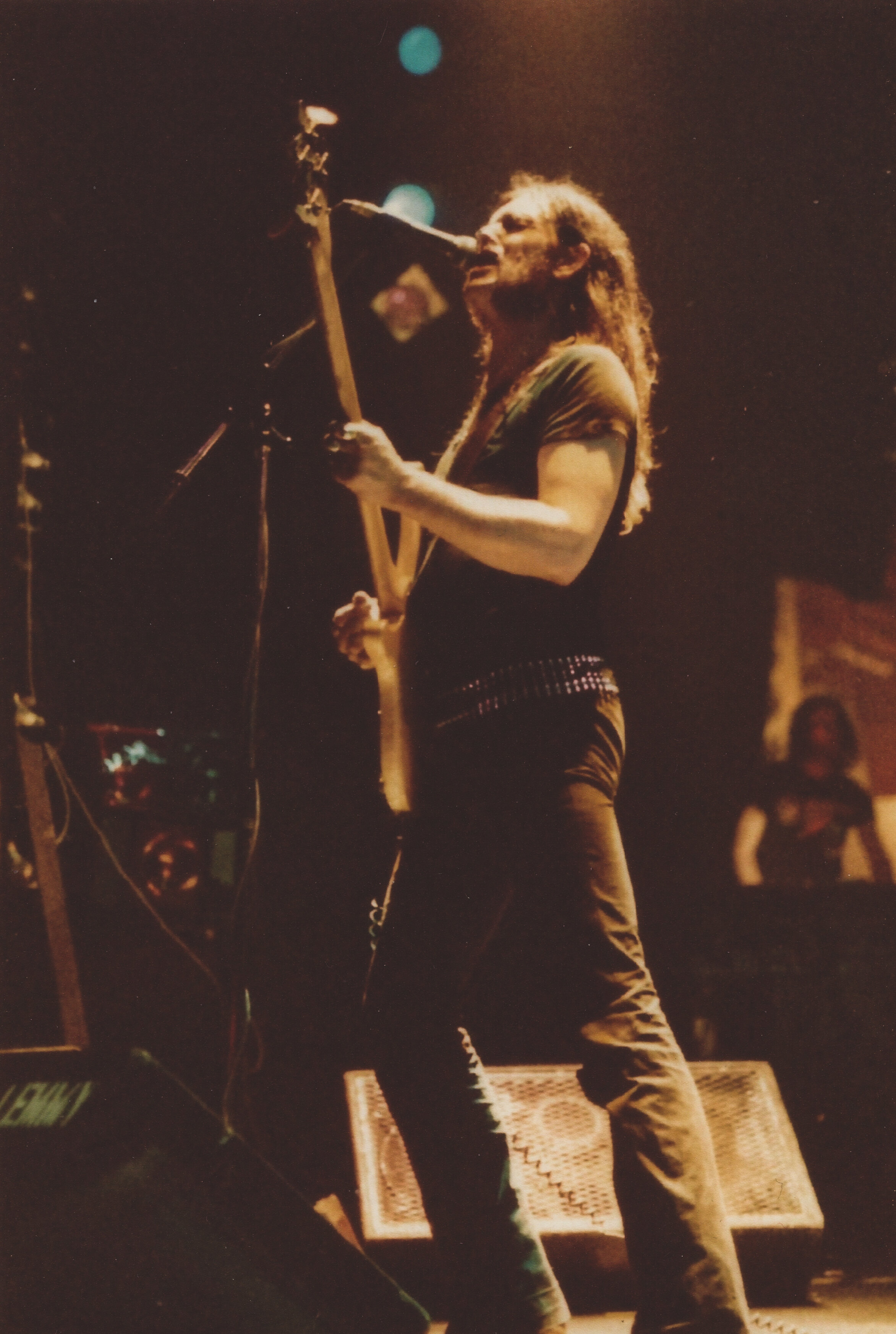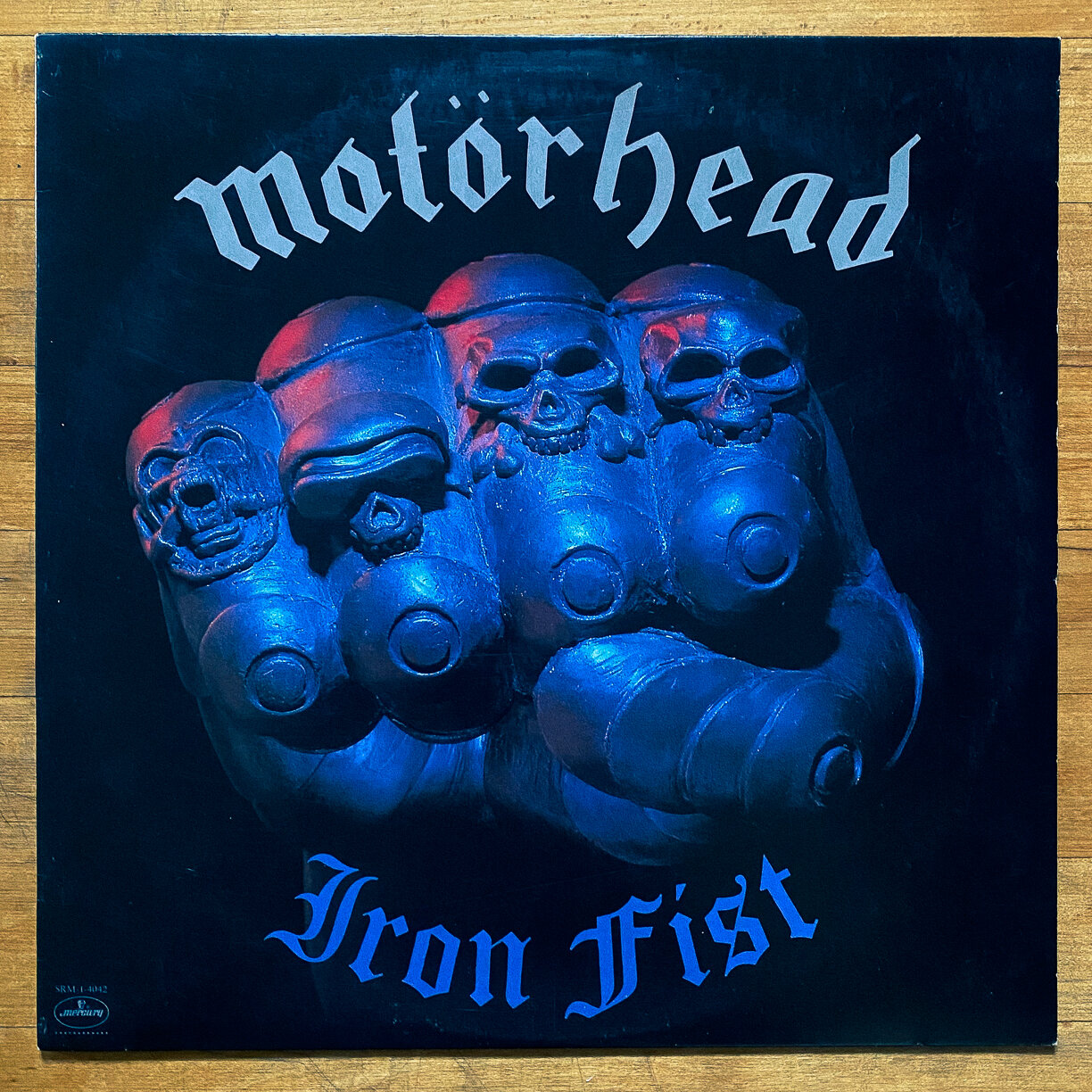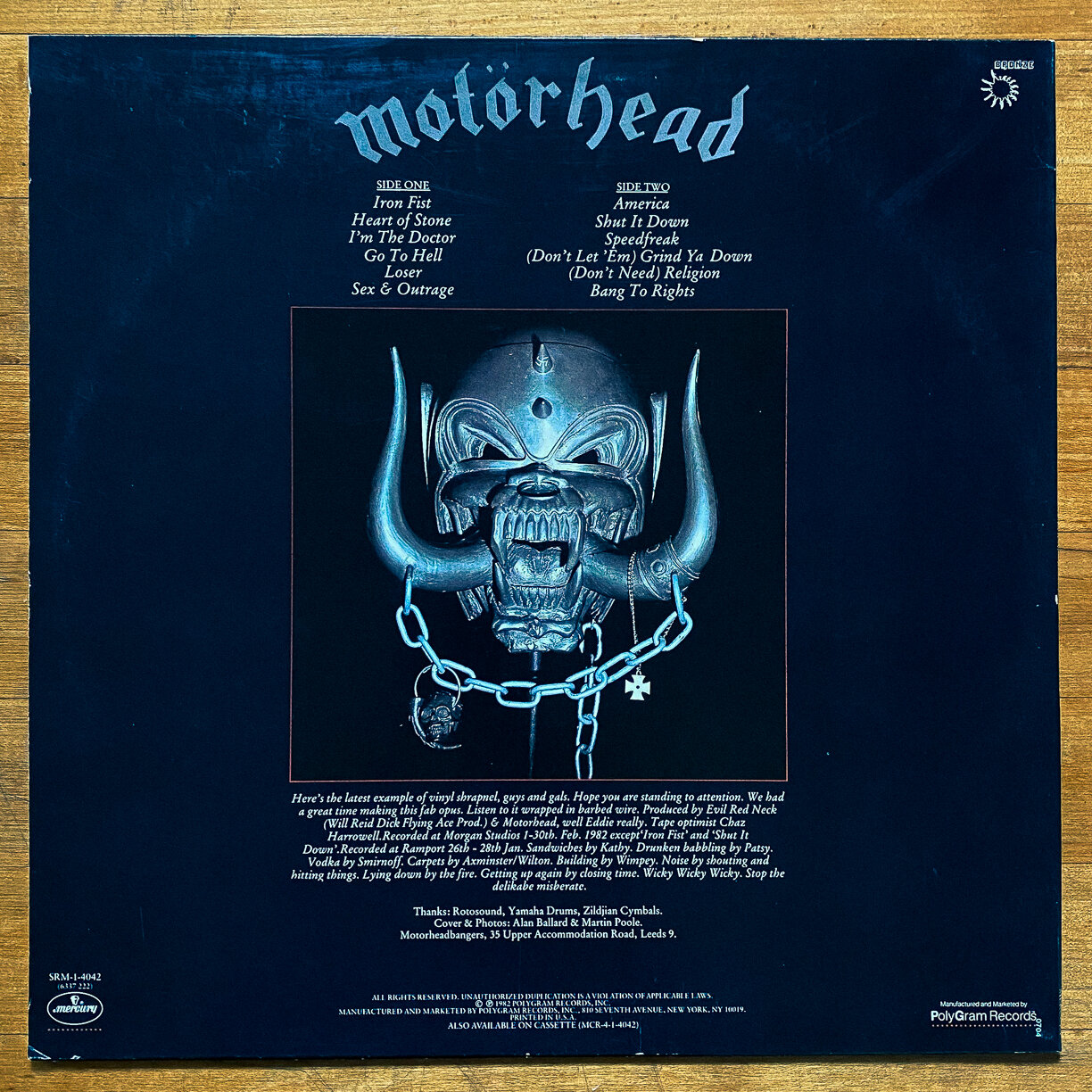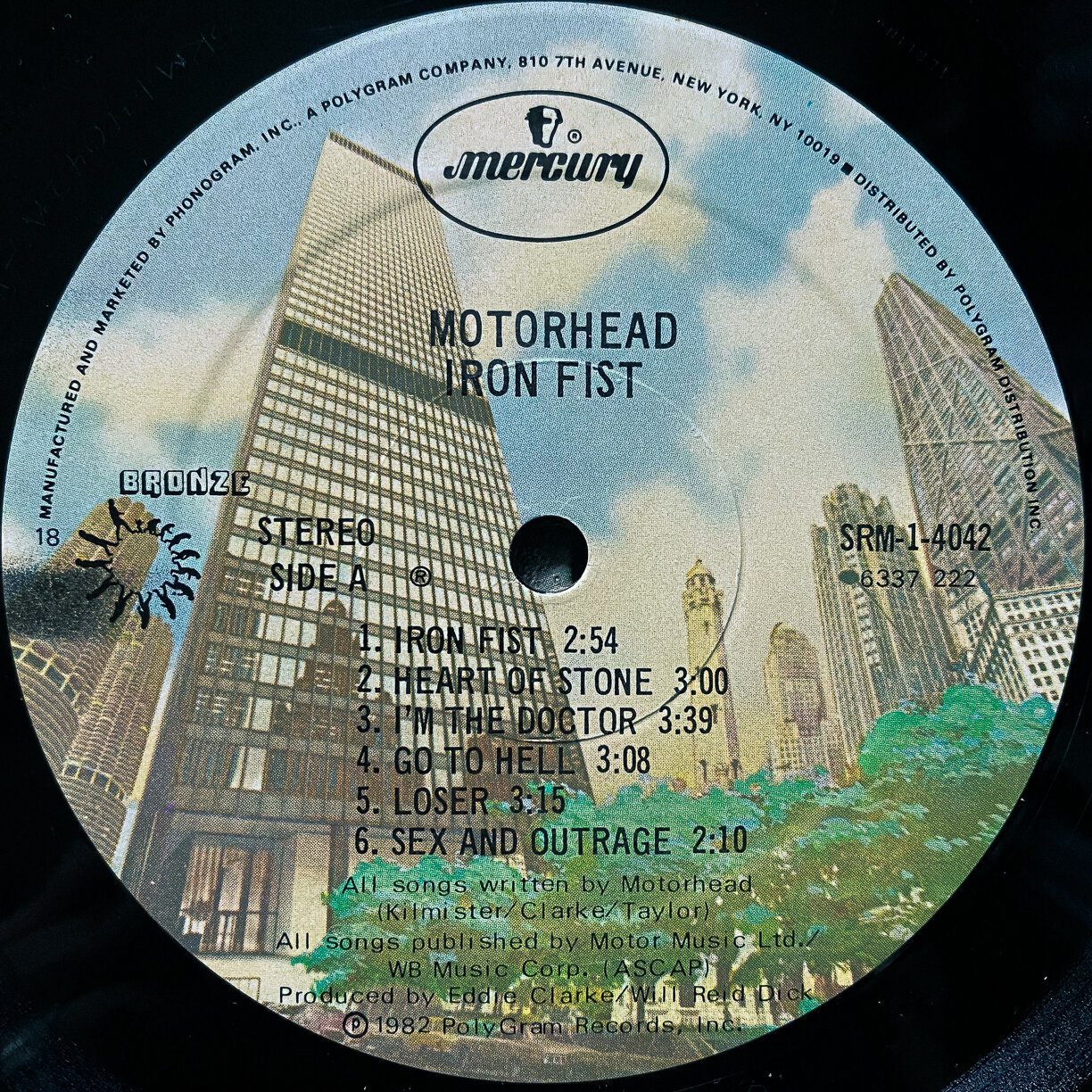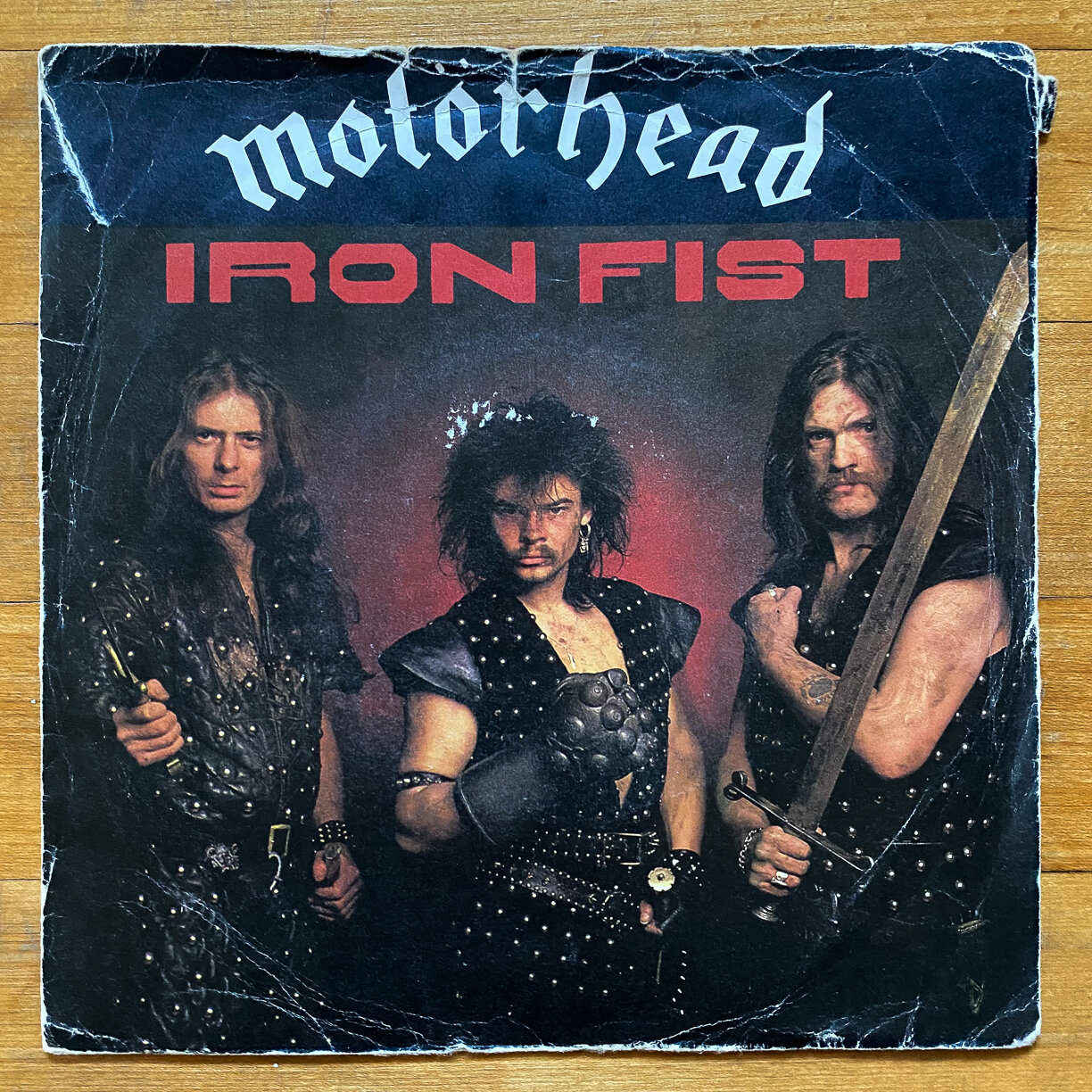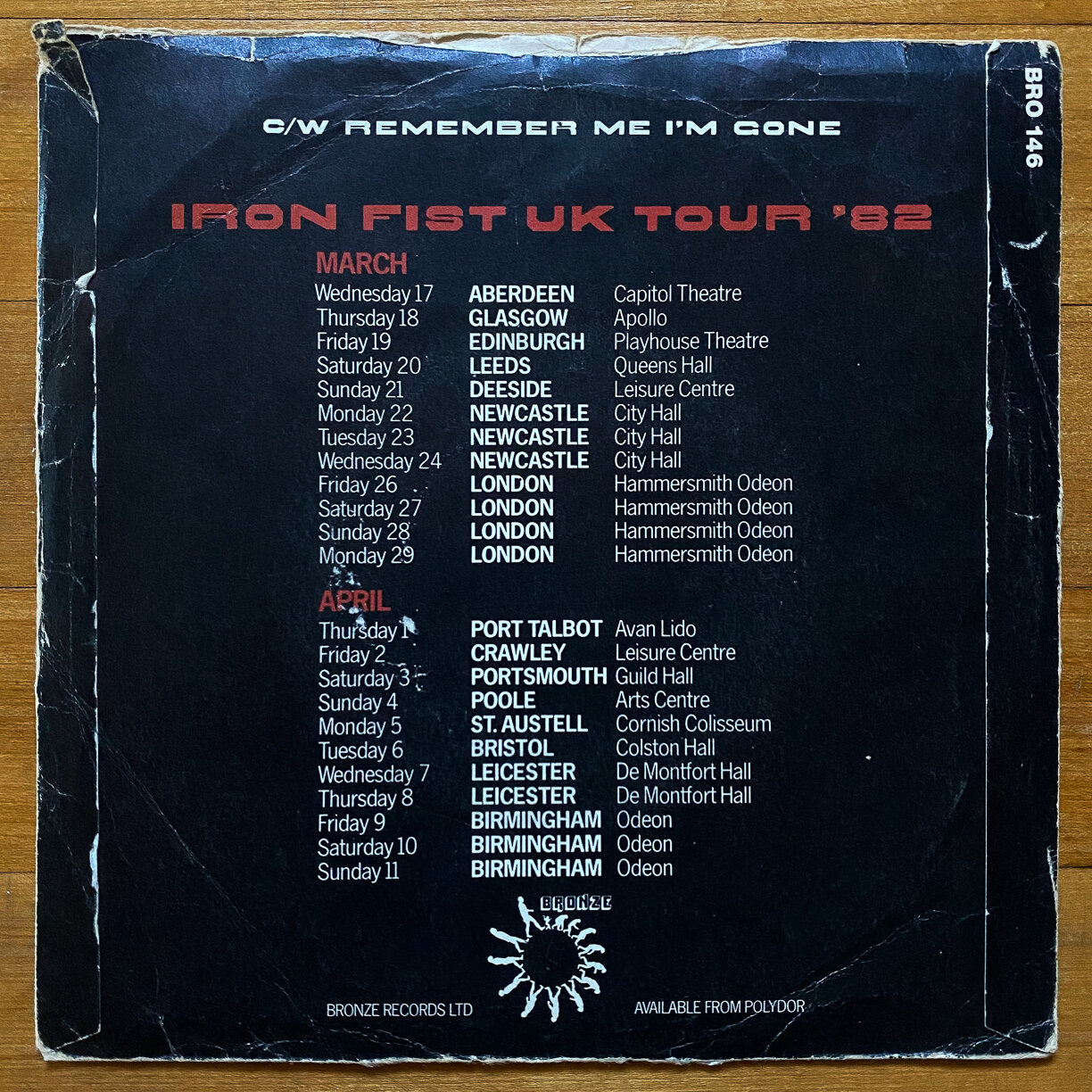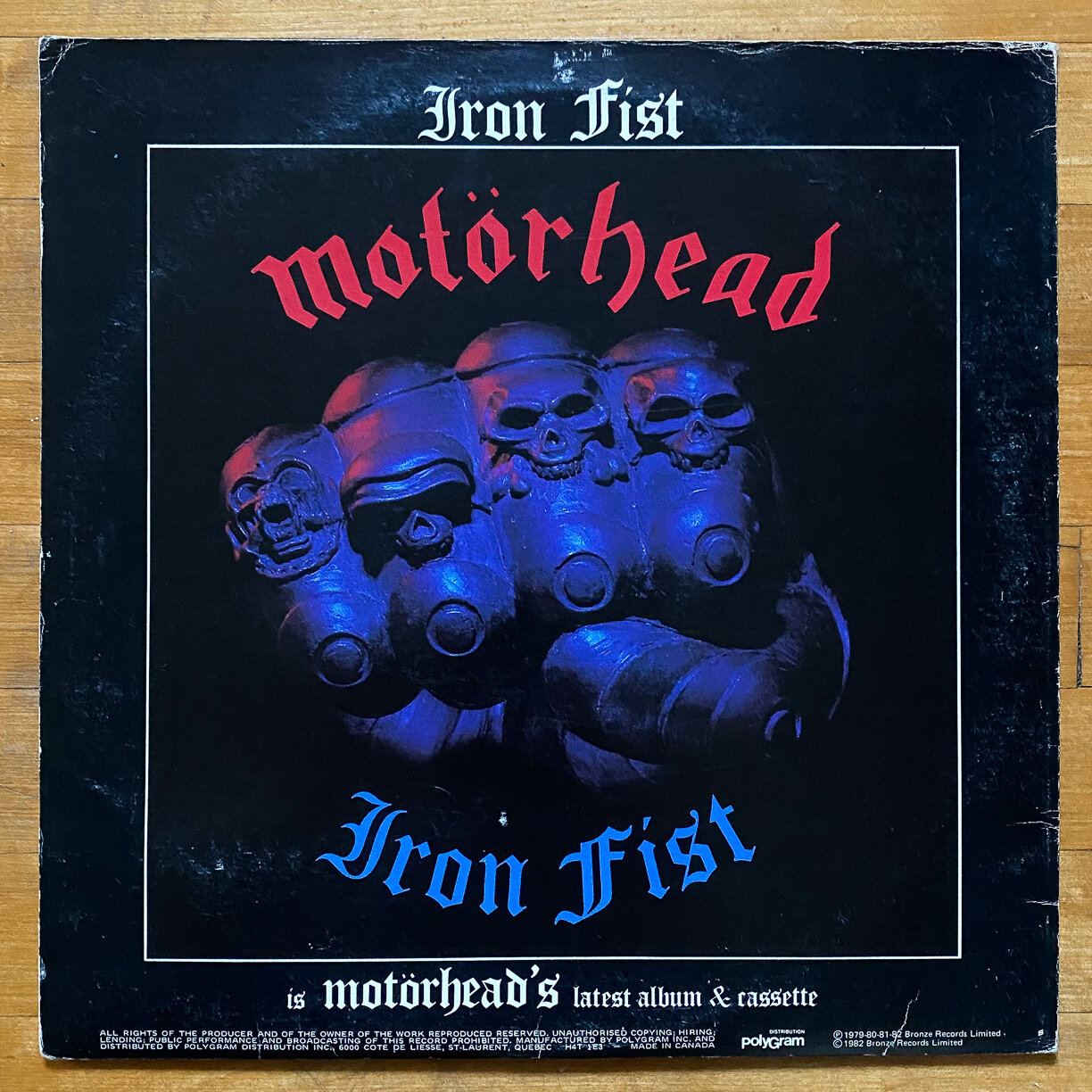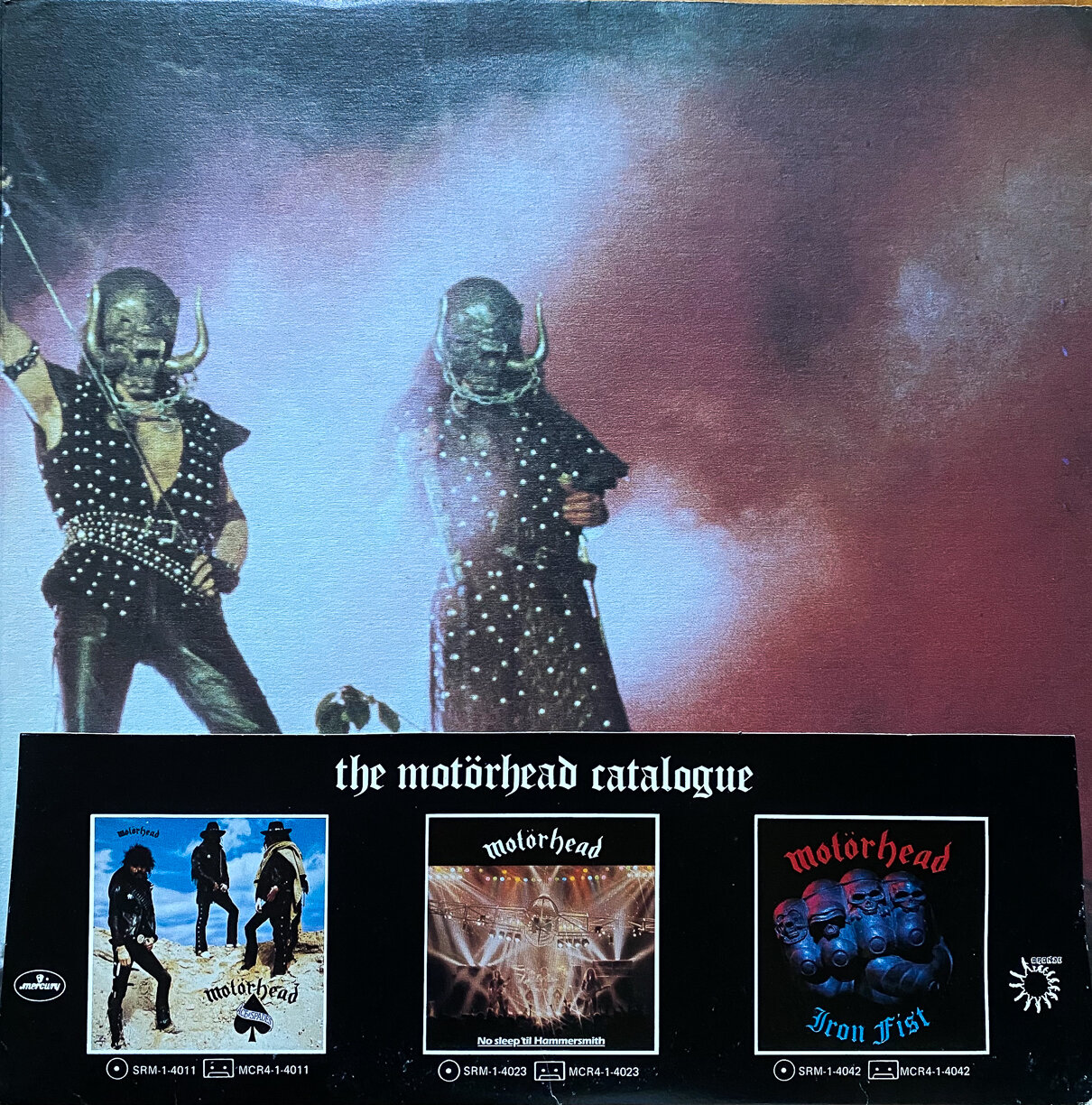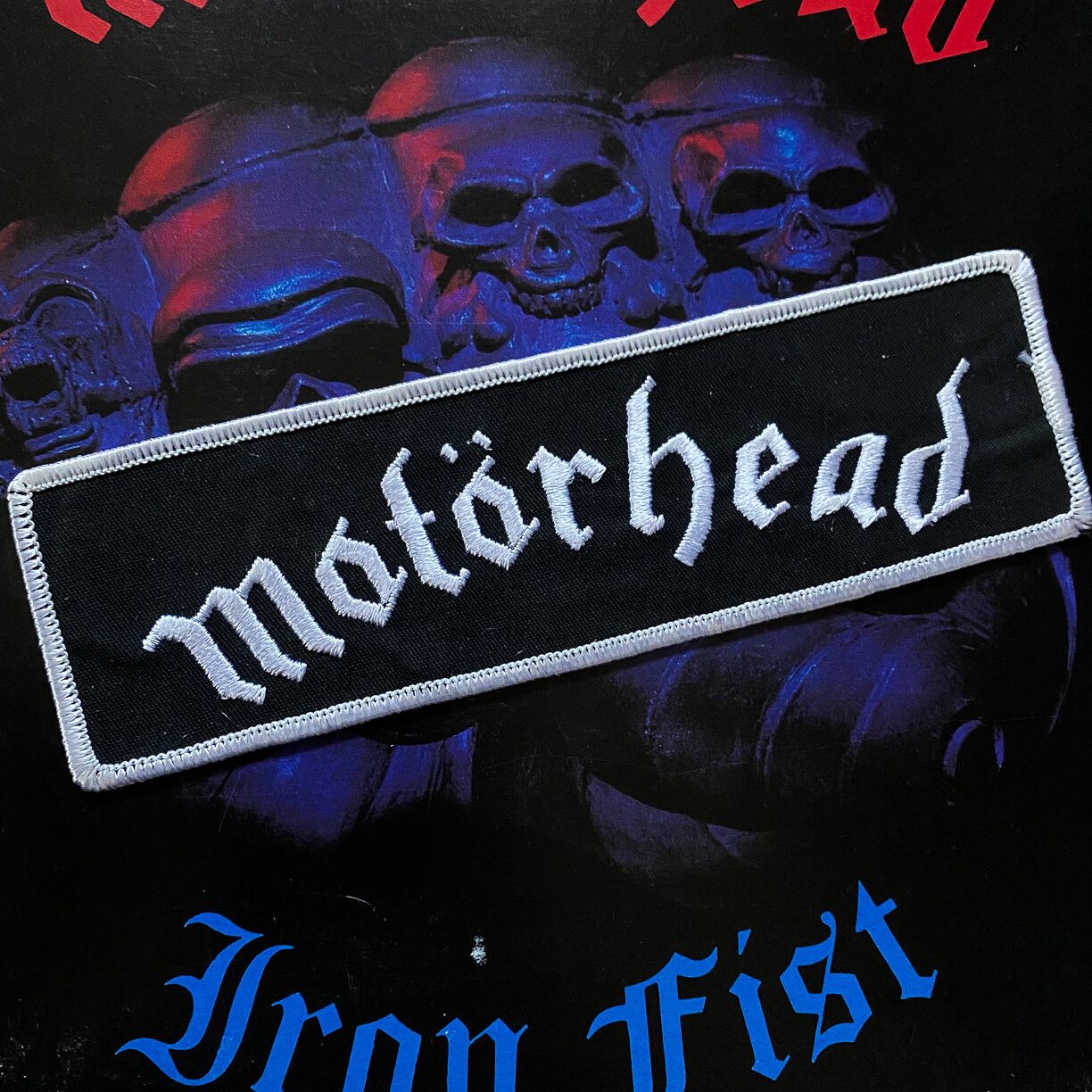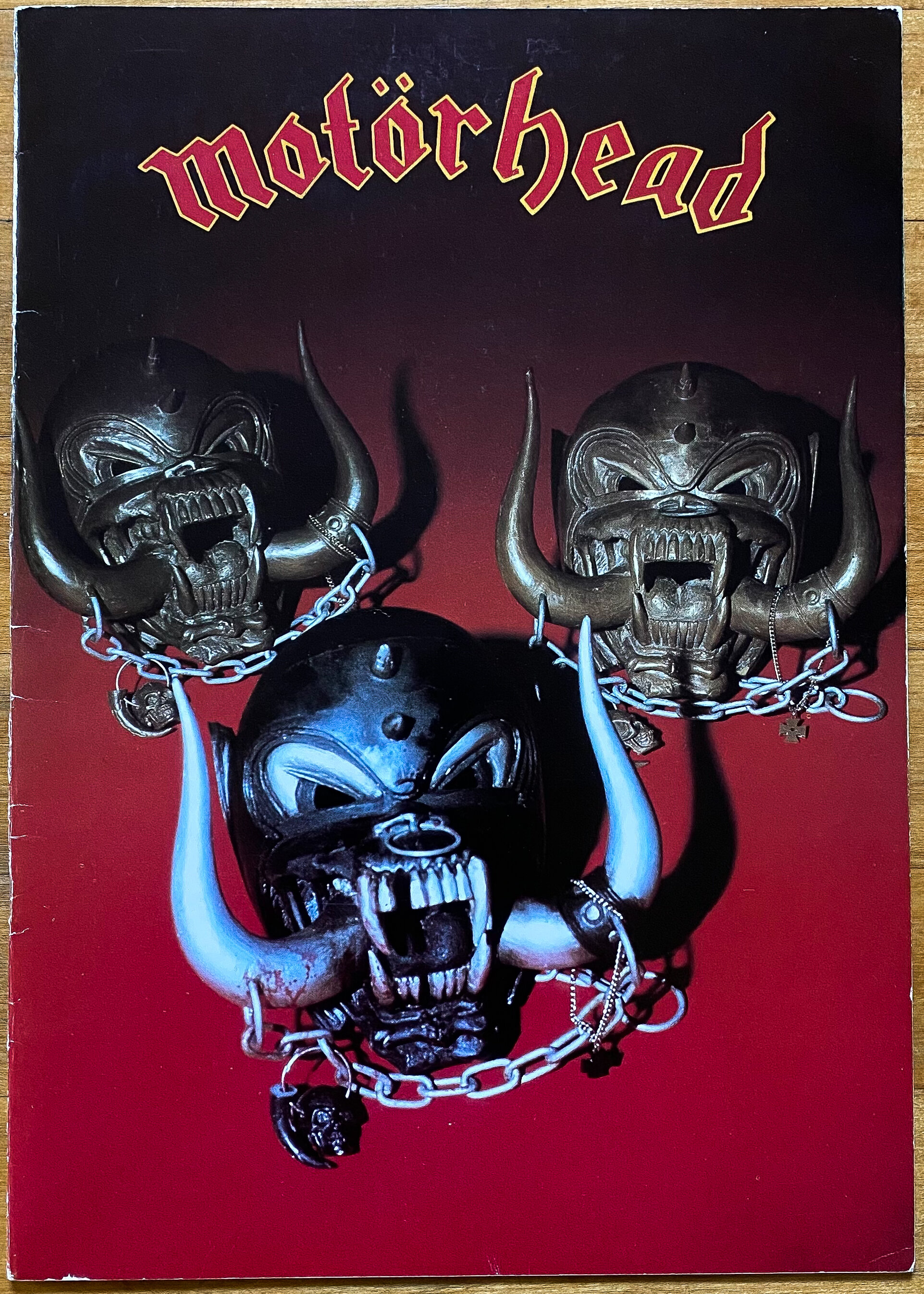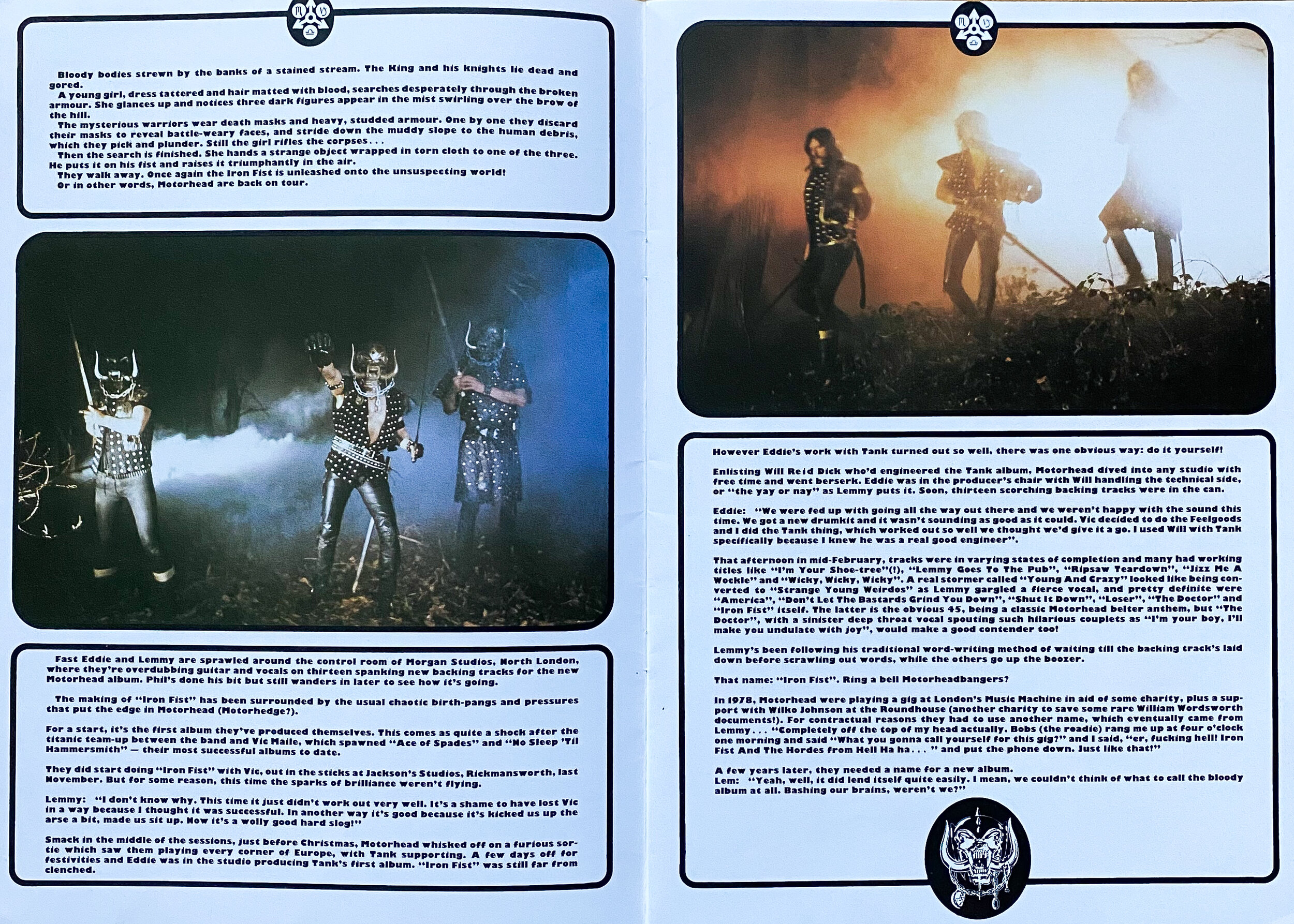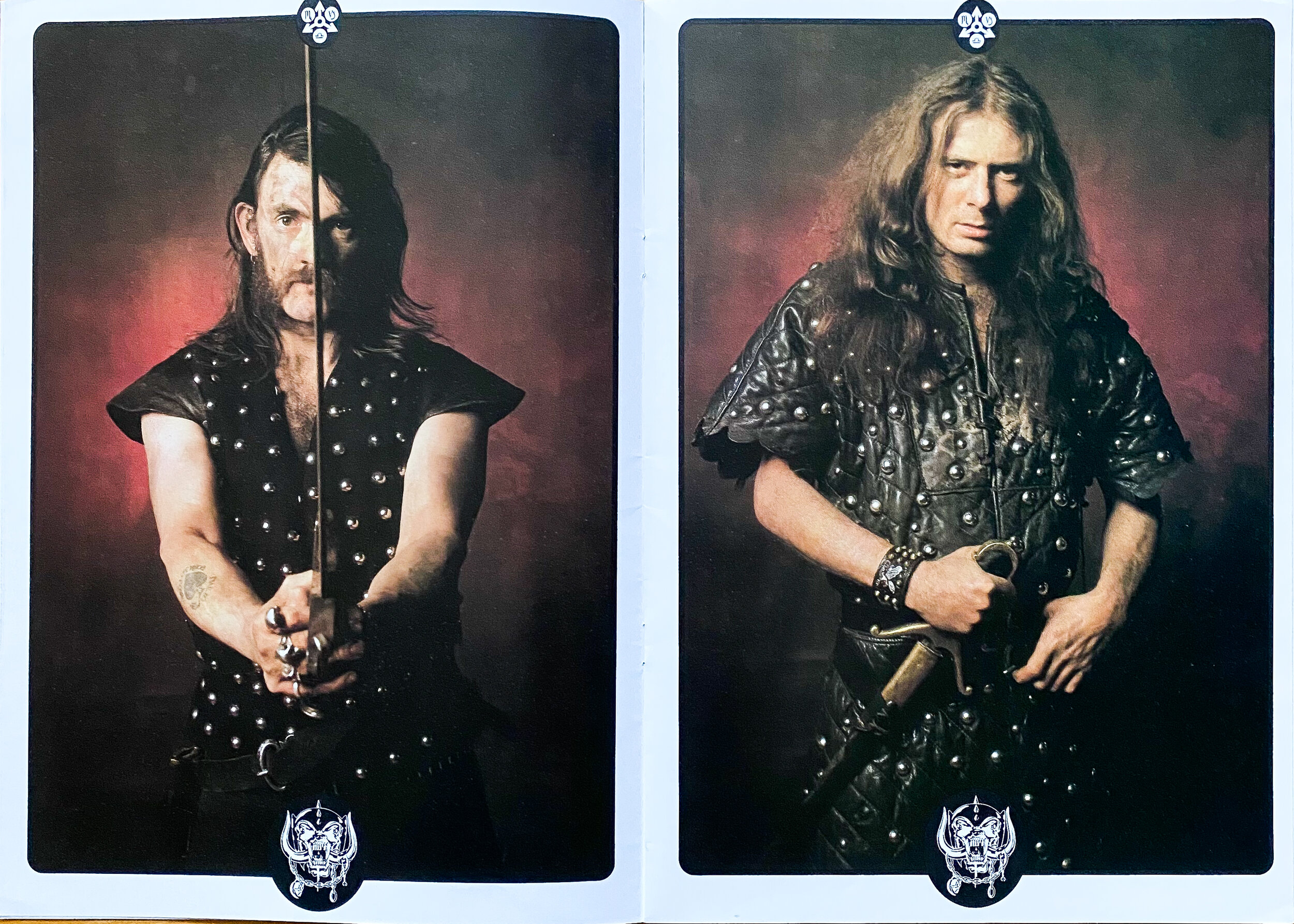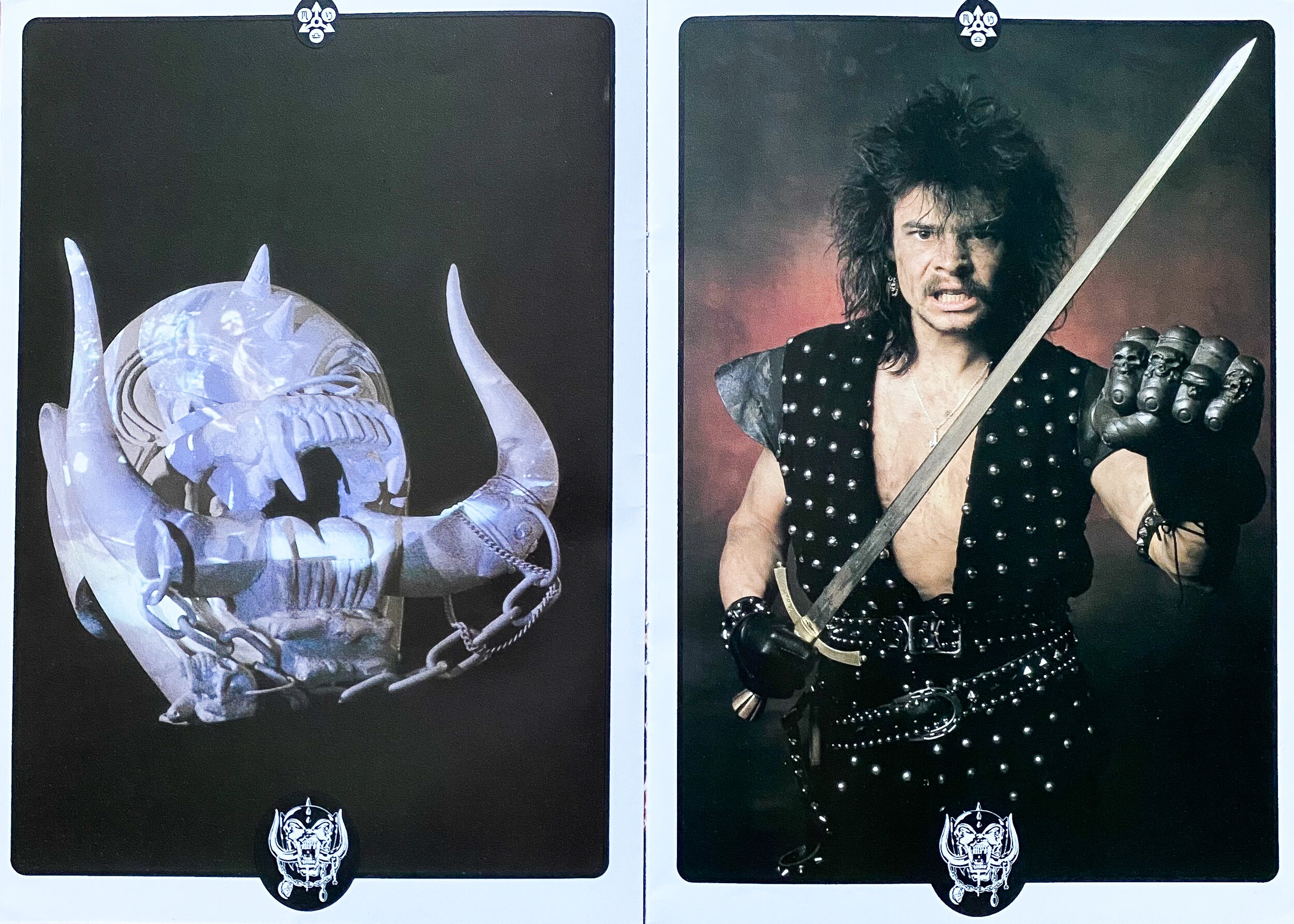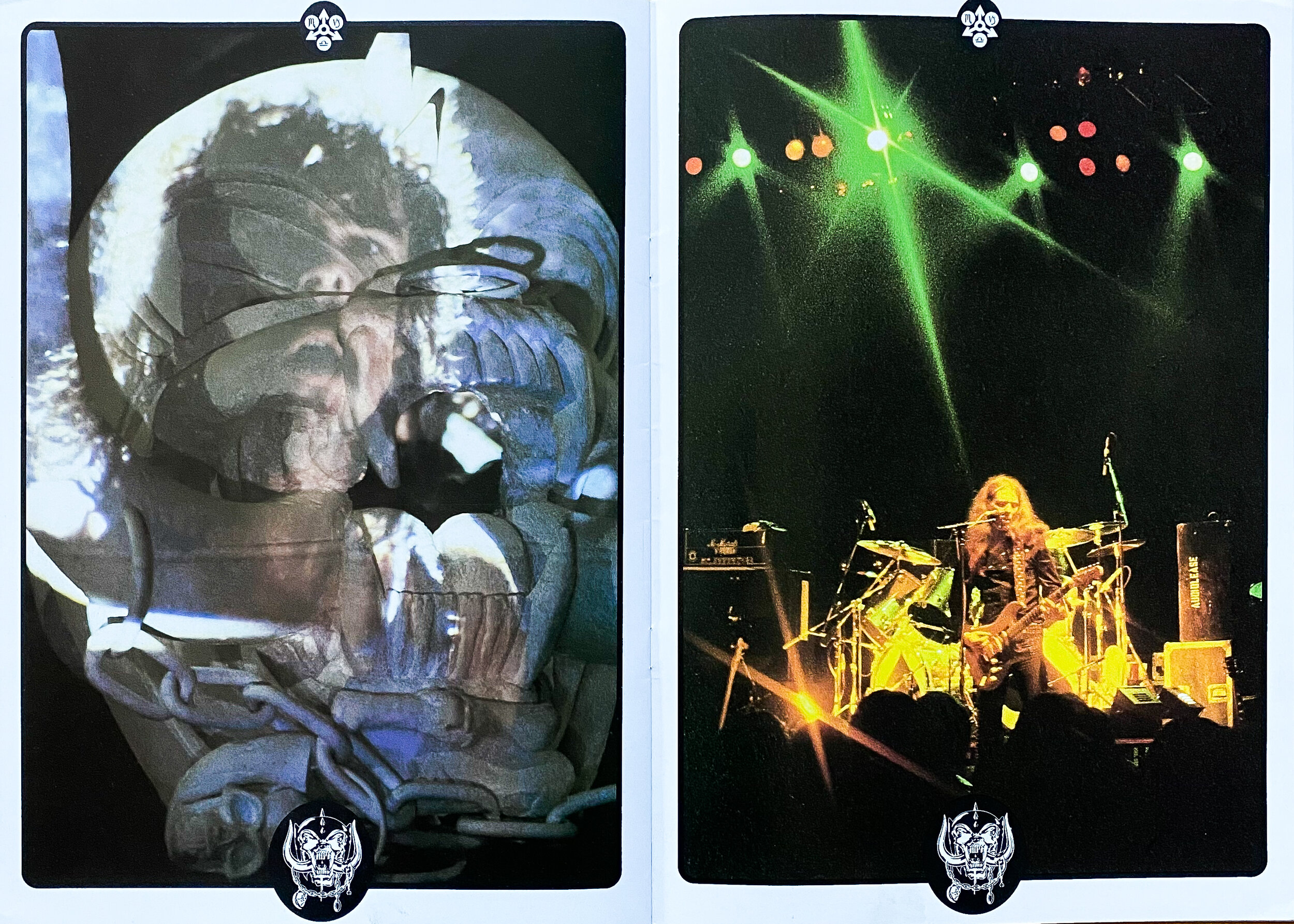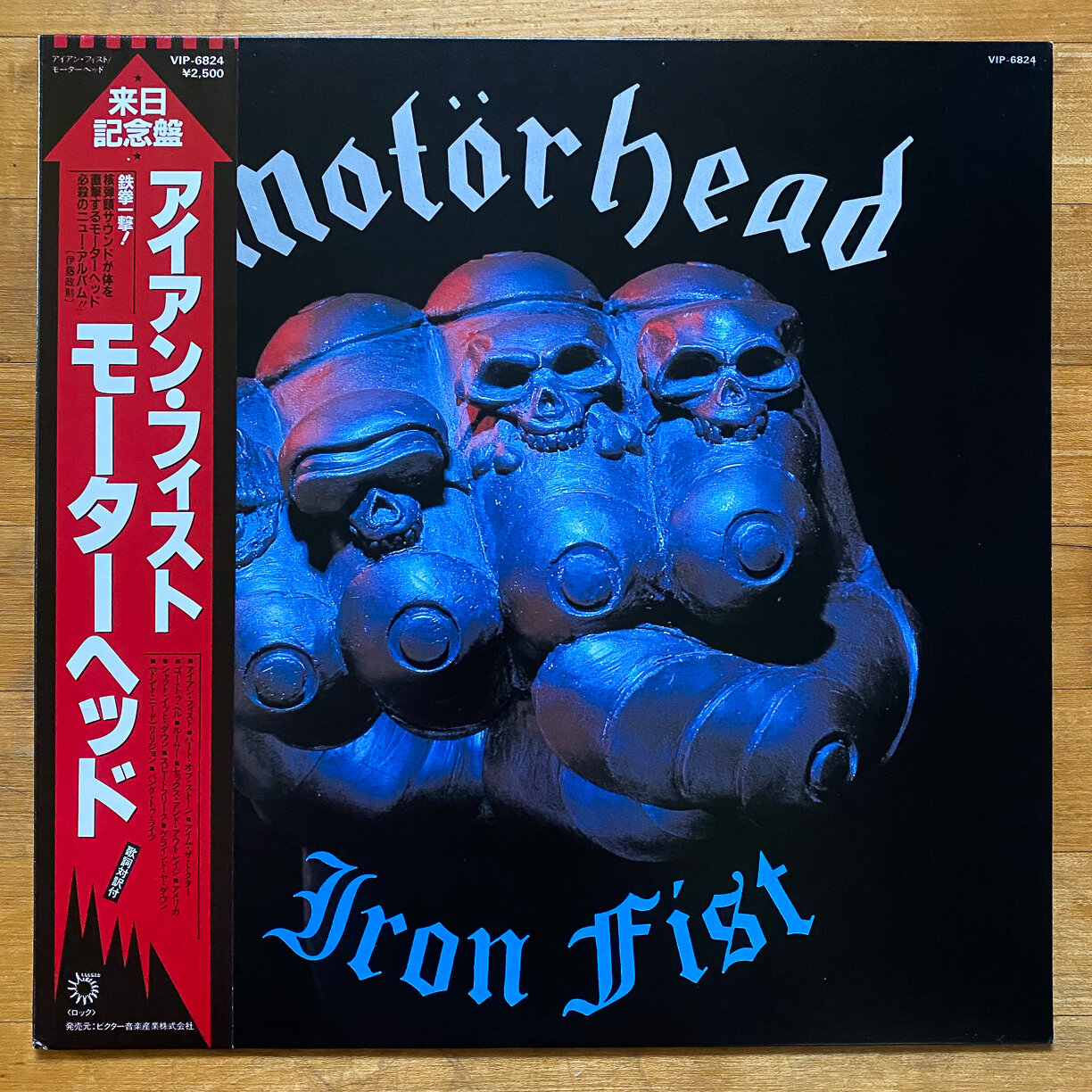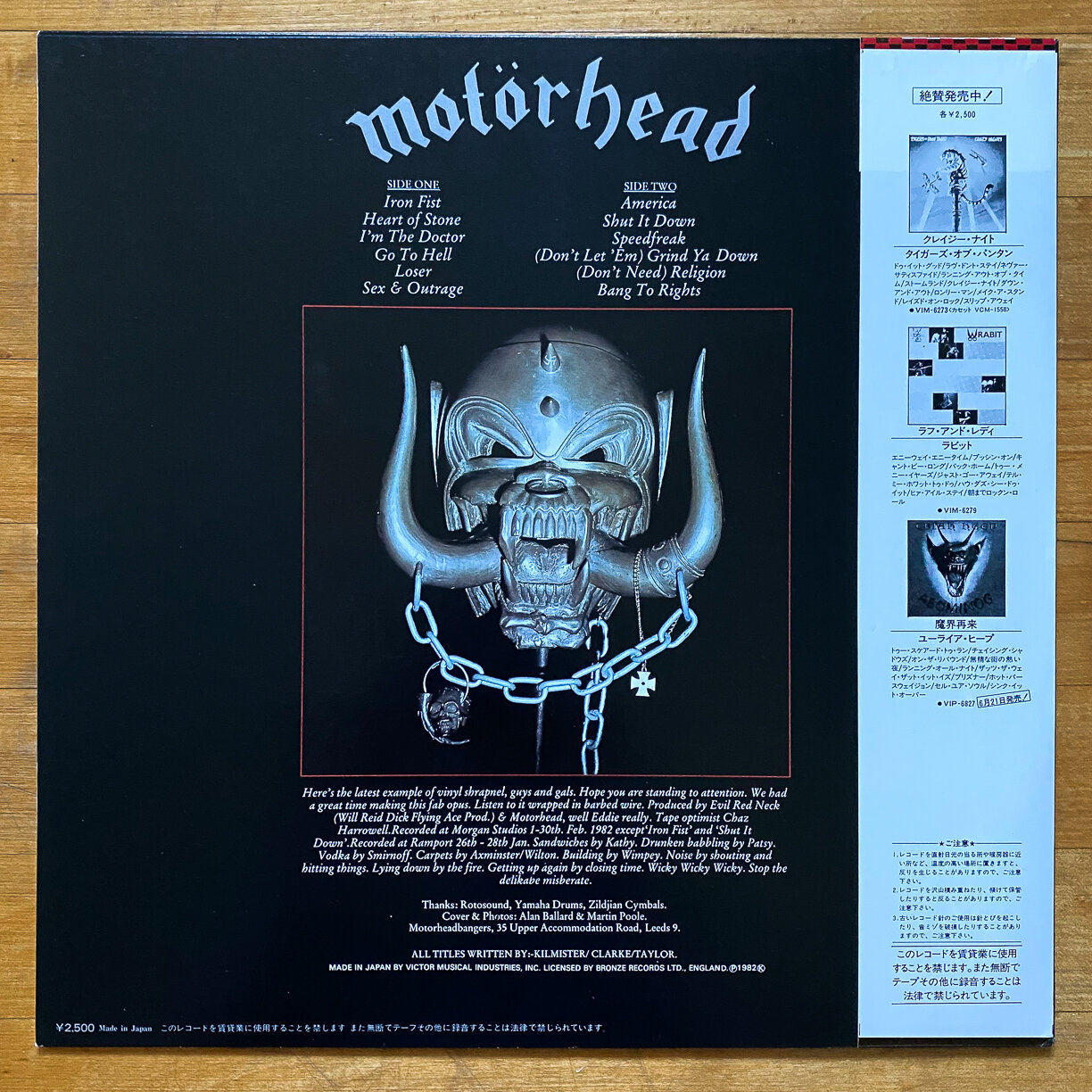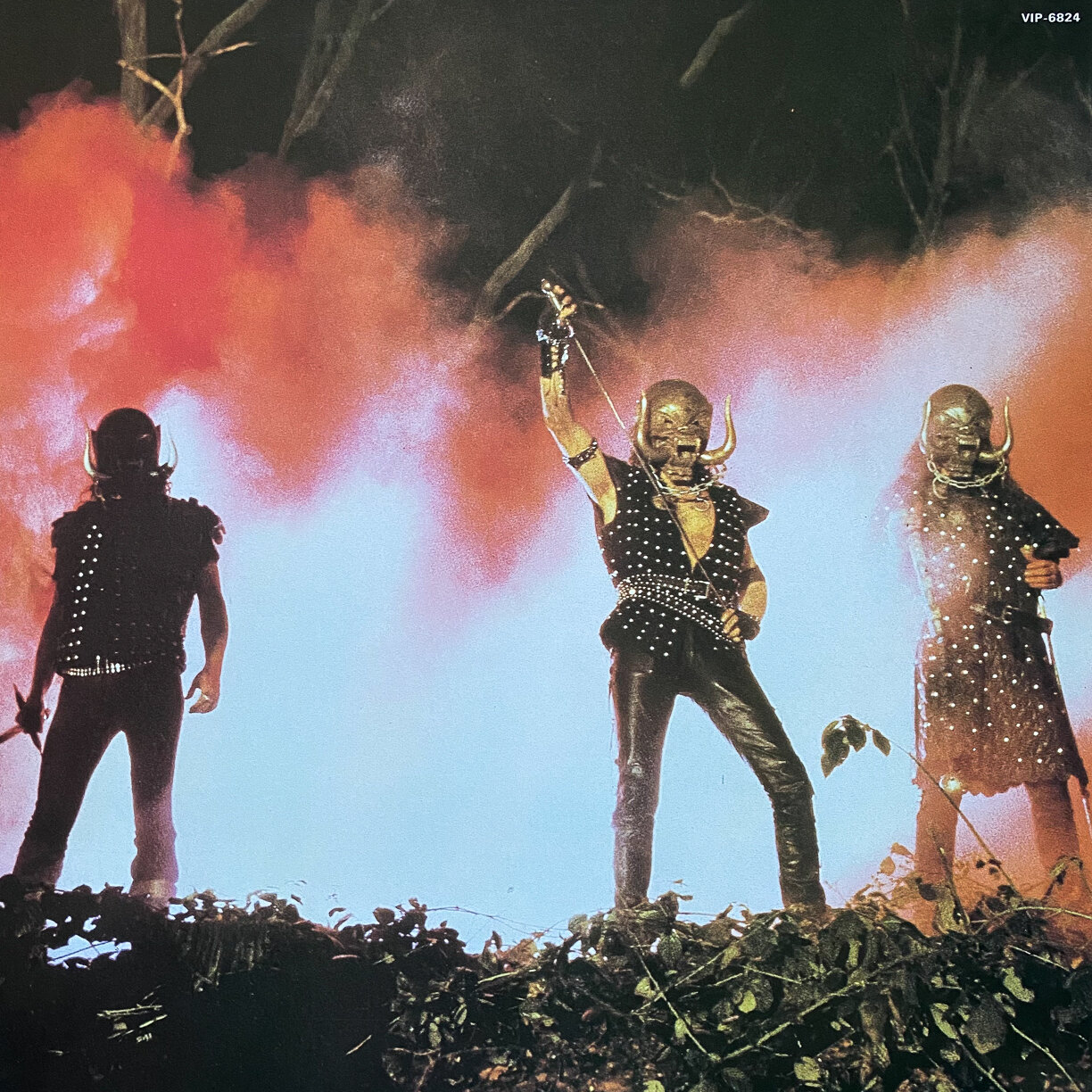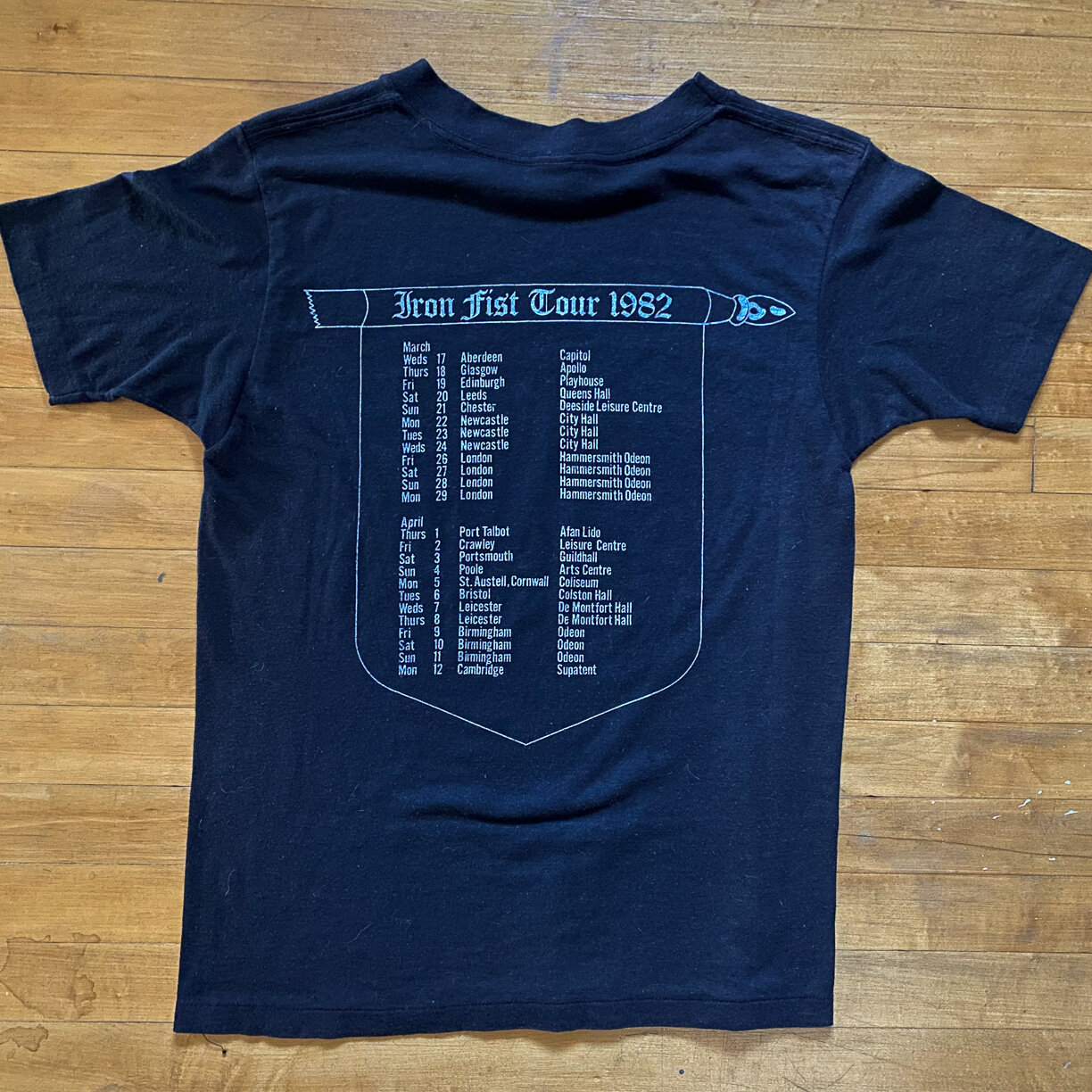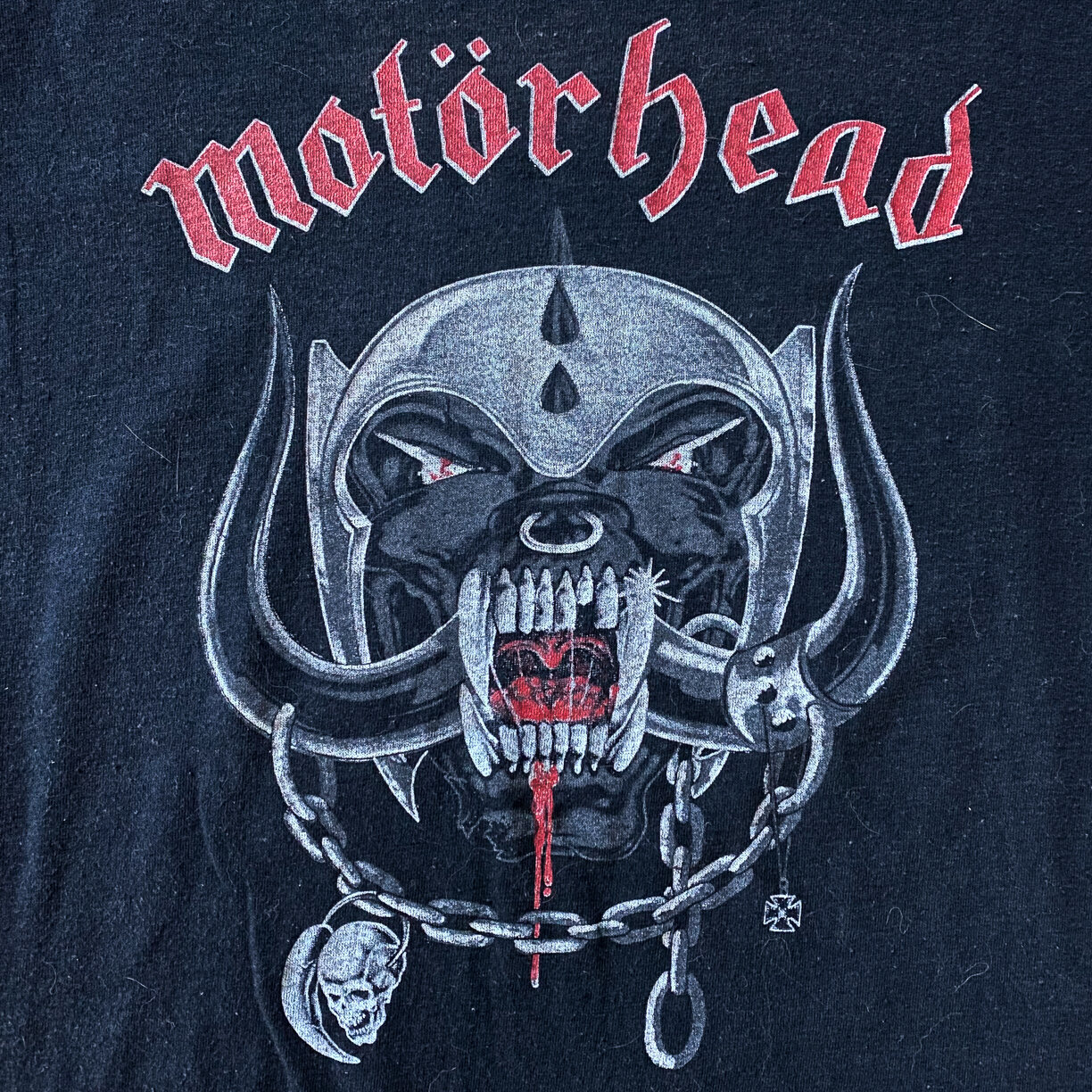Remember Me, I'm Gone: A Forgotten Film and the Final Days of Motörhead’s Seminal Lineup
There is no denying that the 1976-1982 lineup of Motörhead was the seminal period of the band’s 40 year career. Lemmy, Fast Eddie Clarke and Philthy Animal Taylor: To say that this lineup was "iconic" would be an understatement of their true legacy. It would belittle the ultimate impact they had on all of rock’n’roll history thereout.
Collectively they forged a new path for the extreme, paving the way for punk and heavy metal to follow for decades to come. Perhaps the only thing that rivaled the sonic chemistry of the "Three Amigos" was their individual personas. Each member was a unique and vital ingredient in the volatile cocktail that made the band so untouchable. Their quick wit, Monty Python-esq humor and belligerent camaraderie were as much fueled by amphetamines as they were by the perpetual struggle of trying to survive as a unit. In the thrust of war, this builds a bond stronger than average. This was not a casual partnership, this was brotherhood to the highest degree, all the way down to the deepest nerve. But as with all stars that burn too bright, this union was not long for this galaxy. And like all great romance stories theirs was full of passion, resentment, drugs, booze, in-battles, bruised egos, conflicting perspectives and above all: regrets.
One thing that Lemmy was quite adamant about in his lifetime was that "regrets" were simply a waste of time. An utterly useless piece of emotional baggage he cared not to give in to. While this may have been consistent with many of Lemmy’s famous mantras, anyone who has read or listened to interviews with the man knows that he is far from being so one-dimensional in thought. Lemmy was a Thinker, perhaps one of the greatest Thinkers of the Postmodern Era.
Though rarely spoken to directly, it was quite apparent that the split with Fast Eddie Clarke in 1982 would remain unresolved for both parties for many years. While they would collaborate on numerous occasions and always cooperate civilly, it's uncertain if the two gents ever formally and truly patched things up in private. It always seemed as though for Lemmy, this split would remain something he hung onto with silent resentment to some extent for the remainder of his career. The constant emphasis on this early lineup, particularly the success of “Ace of Spades”, would always overshadow whatever album the band was trying to promote at any given moment in the later portion of their career.
Depending which interviews you read, and depending who is telling their side of the story, you will find varying details when recounting what led to the end of the lineup that became the benchmark that Motörhead would forever be measured against. Some versions of the story claim Eddie was outright fired, some versions declare he quit, other versions imply he was slowly “pushed out” of the band over time. But one thing that seems consistent with all versions of the tale is that "Iron Fist" would signify the beginning of the end of the classic era of Motörhead.
All three members regarded the album with some level of disdain. Eddie in particular would speak of the record with an undertone of sadness, perhaps because this would be his final testament for the band. He felt it was rushed, poorly produced and he particularly hated the theatrics that were supposedly pushed on them by the record label. While the details of why decisions were made and who made them also varies across retellings, particularly the reasons for selecting Eddie to produce the album himself, the overarching remorse remained consistent amongst the three core members.
However, in spite of their personal feelings towards the album, “Iron Fist” was far from a failure commercially, and over time many fans would still come to consider it one of Motörhead’s finest records. Further proof that perspective is oftentimes subjective, and even that is subject to change over time.
Still, after "Iron Fist," Motörhead would cease to ever be the same band. Yes, they would absolutely continue to produce numerous classic albums, many of which could be considered standalone masterpieces in their own right. However there was simply something glaringly absent after that break.
The unique aura of the band would forever be different after the dissolution of this lineup on May 14th 1982 at the New York Palladium. A crucial piece of the Motörhead soul was lost; that “something” was the manic union of these three musicians. They simply could never reach the same heights apart as they did together because a band is not the product of one strong-willed individual. The whole is greater than the sum of its parts. It is the culmination of the collective energy of every member, no matter how flippant or indifferent they may be.
At a point in history where the deification of Lemmy’s persona seems to tower over the actual legacy of Motörhead, it is prudent to revisit such key moments in the band’s story that would effectively change the course of the group forever. If there is one thing we had to realize in Lemmy’s ultimate passing it was that he was just as human as the rest of us.
This film is a piece of that story.
Only used “officially” on a few occasions during the early days of the Iron Fist Tour, this short film would never have been seen by many outside of those select audiences for multiple years. After being nixed from the stage show, the film was sequestered to exist only within the VHS trading circles of the pre-streaming era. While it has been easily accessible online for the past decade it still seems few people consider it more than a quirky novelty; an anecdotal piece of lore from the band’s sprawling history.
Negative Insight had the great pleasure to speak with the film’s director, Nick Mead, as well as close friend of the band Steve ‘Krusher’ Joule to shine a light on this puzzling relic from the archives and to help us better understand its greater significance in the overall story of Motörhead.
Interview with Nick Mead
How did you land the gig of directing this film? Were you already familiar with Motörhead before taking the job?
I was a big fan of Hawkwind and The Pink Fairies, the backdrop to my formative years growing up in North London. I followed the creation of Motörhead, was at their first gigs, at the Roundhouse and Hammersmith. Had met Lemmy a few times at The Roundhouse but only really as an appreciator of the music.
I was mucking about in photography and trying to get into film at the time, I was 24 and had dabbled a bit in fashion and worked as a press photographer. Anyway, I was working with a film company and we’d made a film (I was the assistant) and needed music, so I reached out to Motörhead and eventually met Wayne Bardell and Douglas Smith, Motörhead’s managers and publishers. Two very forward thinking progressive inventive musical entrepreneurs who worked out of the hallowed offices of 15 Great Western Road.
I met with them and they said they wanted to get into film and I said so did I and we formed a company Catapult Films and I moved into the office and off we went. I joined the week "No Sleep ’Til Hammersmith" charted at number 1. Initially I was trying to turn Mick Farren’s book, "The Song Of Phaid The Gambler" into a feature film.
Amidst all this I was on the periphery of whatever was going on at the office at the time. It was great fun and there was always something going on.
When it came around to "Iron Fist," I was tasked by Wayne and Douglas with making a stage film for the band, this was to be shown on a scrim before the band hit the stage and then the scrim would fall and the band would be on stage behind it. Not my idea, the idea of the management and (presumably) the band too. This, on top of the "Iron Fist," and the masks and the massive mechanical fist which would extend with spotlights on the fingers at the end of it. Clearly there was a lot going on and all of it mechanical and timed by humans… these were not computer coordinated timings, this was to be coordinated live on the night.
While totally out of character for Motörhead, in a vacuum this short film is undeniably a fantastic relic. It is darker and more brutal than any other promotion for bands at the time. Who came up with the concept for the film? Did the band proactively take part in any aspects beyond appearing in it?
From the get go we wanted to use the music “Mars, the Bringer of War”, by Gustav Holst, so we started from a dark place. In retrospect and hindsight this was a band that were fueled by a collective sense of humor so our destiny wouldn’t have been rosy. It’s a bit difficult to take yourself that seriously. Likewise with the masks and fists and mechanics… one could say we tried very hard, maybe too hard.
The band would have most definitely been involved, and it was all about pulling as many favors as we could.
Who else was involved with the production (actors, directors, designers, etc)?
It would have been Wayne, Douglas and myself and the band. I brought in a good friend to this day, assistant director Francesco Riedy, who at the time was starting out with The Muppets at Elstree!!! But eventually went on to do great things, though some would say the Muppets were great things. He was crucial to getting the day done.
We designed it ourselves and threw in ideas as we had them.
The band was following up two successful releases ("Ace of Spades" and "No Sleep 'Til Hammersmith" both appearing on the UK Charts). What type of budget were you working with? Was the label (Bronze) easy to deal with?
Not enough of a budget, very limited, this was all shot on film, so not a lot of room for mistakes. Bronze had nothing to do with this at all. It was a stage film for the tour. Though I later worked with Bronze on a few projects and loved Gerry Bron. He was very nice to me and very generous to me also. He produced "Blinded By The Light" for god’s sake and it was interesting that I eventually ended up in the world of Bruce Springsteen for my Clarence Clemons film.
The band always claimed this film as something they were averse to at the time. The story is that it was pushed upon them by the record label (Bronze) and they seemed to carry some shame and resentment for having done it. Presumably this is why it has only surfaced in recent years. Did the label ever offer you insight to their goal or intent with producing it?
Bronze Records were not involved at all (unless they eventually paid for it as tour support). It wasn’t pushed on anyone and the band wouldn’t have done it unless they wanted to. I recall running a test of our bit at Hammersmith Odeon with a projector and a "scrim drop" and there being technical issues, but nothing that couldn’t have been overcome. And as I said before, no one was taking this that seriously, this was a fun idea that evolved into a fun exercise. I think at the end of the day there was too much going on and too much could have gone wrong, something had to go and it was the opening film. I know Eddie later said it was his Spinal Tap moment and I think no one, including me, would disagree with that.
After this I made a load more other films for Motörhead, including "Eat The Rich" and Motörhead did the music for my film "Black Leather Jacket"—Lemmy was in my film on guitars and we’d see each other at the Rainbow on occasion having both moved to Los Angeles. So not sure about any "shame" or "resentment," more fun and what the fuck was all that about?"
The band regarded the "Iron Fist" album as the "beginning of the end" of sorts for the classic line up. There were well documented tensions through every point surrounding the album, from writing, to recording/producing, to touring, and ultimately coming to a head with Fast Eddie’s departure. It seems like it must have been the worst possible time to get them to cooperate with a production like this. How were the vibes or general mood on the set of this production?
They were all great and seemed to all get along fine. It was a fun and easy shoot and there was no band conflict that I was aware of during the shoot.
I think we shot it in Hertfordshire at a friend of the band’s house which backed onto a forest, hence we had access. Not sure what the local farmers should have thought of an invasion of vodka driven medieval knights descending on them one Sunday evening.
We got all the costumes from a company called Bermans and Nathan’s in Camden Town, I think most of the costumes were originally made for a film called Merlin, which John Boorman made way back when… it was lit by aircraft landing lights hidden behind a hill and we dropped a few smoke bombs to create "eerie smoke" which the band walked through. Nothing that technical and thankfully it wasn’t a windy night, the smoke basically did what it was told!
I had no idea about health and safety and it would have been the legendary "Road Crew" who made it all work. The "knights" who were dead in the "river of blood" were the Road Crew. And in-between takes someone would run around with a bottle of vodka to keep everyone going.
The girl searching for the "Iron Fist" was Cathy who worked as a receptionist at 15 Great Western Road.
Any last words or thoughts on the experience?
It was fucking awesome! Only thing I would add is:
The lasting effect of working with Motörhead. At the time we weren't considered that fashionable, didn't get invited to much, the party was always in the office or at the pub, The Union, by the Canal. Looking back on it we were very self contained. So cut to a million years later, I've moved to L.A. to make feature films and documentaries, doing alright, and I'm in a meeting with some executive who can't have even been born when we did what we did. We're making small talk and for some reason Motörhead comes up and the guy says "wait a minute, did you do the video of Eat The Rich? And I say yes, and it's like a moment of fan adulation. It's amazing to me how over time Motörhead have this wonderful respect and historical significance and importance. At the time it was pretty much a laugh, going into 15 Great Western Road every day certainly was. I'm forever grateful...Motörhead was my film school -- Glory Days indeed....
Nick Mead outside of 15 Great Western Road, formerly hallowed ground of management offices for Hawkwind and Motörhead (2019).
Interview with Steve Krusher Joule
For the uninitiated, can you please introduce yourself?
I am Stephen George Faulkner Fuckpig Krusher Joule and I've got more rock'n'roll under my little fucking finger nail than you'll ever have in your entire fucking life.
Much of the Motörhead lore surrounding 1982 recalls it being a somewhat somber period for the band. What are your memories from the “Iron Fist” era?
You've got to remember that they were probably pretty burnt out by everything that was going on up to that point. Tour after tour, and I think there were definitely issues within the band because of that, just like with any three friends or three people working together. You have to have a break, you know? And I don't think they were really given enough space to have that break. I definitely know there were issues with Eddie. I’m not sure he was 100% happy having to take on the production role for the album. I've got a feeling that they were just kind of going through the motions: "We got another album to do, let's just go in and get it done".
You might notice that a lot of the songs end with fade-outs, right? They don't come to an "end" they just fade-out, which to me always indicated that they can't even be bothered to do a proper end...can't even be bothered to do that little bit to make it complete. Even Lemmy has gone on record saying it's his least favorite album, and that three of the tracks weren't even finished. I couldn't tell you which ones they were though!
It's a weird one because I didn't listen to it a lot. I have listened to it a few times since we started talking about doing this interview and…it's a Motörhead album. Yes. It's the classic lineup but it just feels like they are resting on their laurels, taking it easy: "Let's bang it out and get it out there and then maybe we can have a rest."
If you experience the album through that lens all of that comes through, absolutely. I also imagine having been close to the band at that time, you have quite a bit more perspective than most people. But as a stand-alone composition, it may not be as apparent. As you probably are aware, at this point in time it's a fairly well regarded album.
Absolutely. I have lots of friends who love this album. As I said I have been giving it some listens these weeks. It's still a bloody great album… but there are elements about it that just don’t feel right. Maybe it’s the production being tinny? I don't know what it is. There's just something not quite right about it.
I suppose it does feel like there is some “element” missing in there. I suspect it’s a combination of all of these things you mentioned. Anyone who has ever been in a band can understand how turbulent the relationship with bandmates can be. That sounds to be what ultimately weakened the ship’s hull, making the album what it became sonically. It also gives gravity to what it would come to represent in the band’s 40 year story.
And you also have to put into the equation, which I didn't mention: drugs, right? Drugs and alcohol. Now, this band is taking enough drugs to fucking kill three elephants. Eddie was more of a coke man, and Philthy would take whatever he could get his hands on. So you’re doing the tours, doing the albums, doing the drugs and the alcohol...that’s going to have a dramatic effect on the equilibrium of the band.
Do you recall the genesis of the marketing theme for the album and the promotional film they made?
I think a lot of ideas were being thrown at the band from various people about which direction to take with it. I'm pretty sure the idea of the film was initially to have it show at concerts before the band came on, but it was never used. I know they used "Mars" sound clip at the beginning of gigs at that time but they never used the film.
It was loosely based on the Lady of the Lake, Camelot, King Arthur and that bollocks. I could never understand why they went down this road. I could understand the cowboys, but I couldn't understand them being knights of the round table to be honest. The actual filming was done at the house of Allan Ballard, he did the photographs for the “Ace of Spades” album. That house actually used to belong to Donovan before him!
What are your memories of the film shoot?
It was fucking mental, cause they were riding horses and everybody was off their fucking faces! Eddie was not happy with his medieval jerkin because it looked like a skirt. They were riding through the woods and when they came back, Lemmy got off his horse and pointed at Eddie and said (in a John Wayne voice): "Get off your horse and drink your milk!". Laughs
It was pretty shambolic. I remember thinking "What are they going to do with this? Where's the story?". As far as I can remember it's just a bunch of drunk and drugged madmen in the middle of the fucking forest making a movie.
When you put it that way it actually sounds like a fantastic concept for a film.
Laughs Yeah! I also remember being particularly impressed with Lemmy's horsemanship, but I didn't realize that as a kid he grew up working with horses.
Laughs Yes, that’s right. He never had a driver’s license but he grew up riding horses!
Normally if they didn’t have someone to drive them they would ask me: “Are you driving?” and I’d say “Yeah..alright…” and give them a lift.
So even at the time you were there, observing this, there was still something that didn't feel right about it?
Yeah! Even though we were all pissed and having a great time I just felt "I can't see this working".
Do you feel the band was pressured into it or did you get the impression they were on board with trying out a new approach?
I'm astounded by the theatrics. I still look at those pictures and think "That doesn't fucking work." They were normally in leather jackets, t-shirts and jeans, you know?
Don't get me wrong, everyone was having a good time! That definitely was the case, but as a designer, I was just trying to figure out "How is this going to work?" There was just something about it that I thought in the longrun, this is a waste of fucking money. Which it was! Nothing has ever done with that film!
I imagine it may have made some rounds in pre-internet VHS trading but even as a relic on YouTube it still seems very few people are familiar with it. I'm not sure it exists anywhere beyond that at this point.
I'm pretty sure Doug Smith has the original.
Did you do the layout for the “Iron Fist” sleeve? I should have looked that up before our interview.
No, I did the tour program though. The only sleeve layout I did for Motörhead was the "Killed By Death" single which was just a black square with the Warpig in the corner! Laughs But on the back there are some fantastic pictures. Like the one of Wurzel being crucified and Lemmy cleaning his nails with his Roman pilum. THAT was when they dressed up and I was like: "Yes I get it!"
The guy who did those photographs was Fin Costello, who I also worked with on "Diary of a Madman" and "Bark at the Moon."
Well, there is a sense of humor in those photos, which wasn't present at all in the “Iron Fist” promotional shots. In fact, the film and the band shots for the album are all very "serious".
You know, I didn't think of that before, but you're right! I remember when I was working on the tour program, seeing photos of Philthy, who was perpetually making funny faces, looking so serious. That's a really good way to sum it up: It was too serious. It was too fucking serious! Laughs
“The Last Gig”: A ticket stub from Eddie’s final performance as an official member of Motörhead.
Nick Mead’s Official Website
Krusher’s Official Facebook
Credits:
Introduction by Max Furst
Nick Mead interview conducted by Nelson Ribas and Max Furst in July 2020
Krusher interview conducted by Max Furst in August 2021
Live photos from 1979, photographer unknown. From the collection of NI Staff
Motörhead records, photography and ephemera from the collection of Max Furst
Iron Fist tour program layout elements from the archives of Krusher

